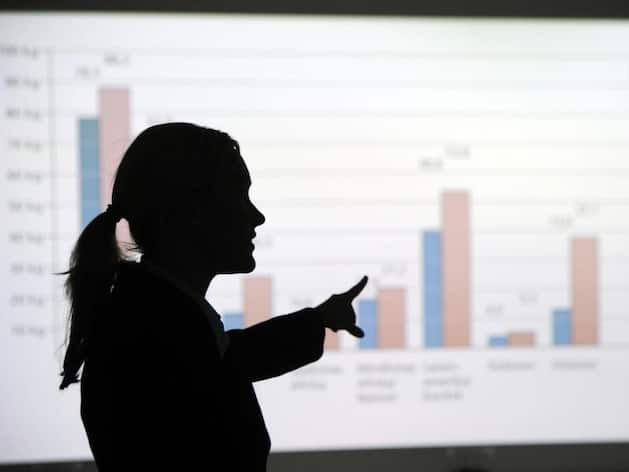The changes in the world present managers with challenges. A new way of leading is needed. In her guest article, Corina Kurscheid presents her personal “Leadership for Future Framework”.
Change and transformation are constant companions in our world – yet they are currently surprising us with an intensity and speed like never before. In order to be able to successfully meet this new dynamic, we urgently need agility and transformation – not without reason the buzzwords of our time.
But it’s not enough to sit back and wait for others to take charge of changing and saving the world. In order to shape the future successfully, we have to start with ourselves. Gladly now.
This is where the “old school” girls’ school comes into play: In 1535, St. Angela Merici founded the Ursuline order with the core idea “Serviam = I will serve”. It was about “shaping our lives together, taking responsibility for each other and helping each other” – starting from the work on myself.
This “old school” attitude differs fundamentally from the currently (still) predominant leadership and performance ideas, in which a clear hierarchy defines the balance of power and pressure, performance and the expansion of one’s own influence are more important than “shaping things together” and ” bear responsibility for each other”.
I myself grew up with this “old school” approach at St. Angela Girls’ School and over the course of my career I have experienced again and again that this attitude sets the right impulses for true interaction between all team members. The responsibility that lies with us managers is correspondingly great: whether we give the necessary space for successful transformation – or not.
In the course of my career, I have filtered out the following five values and skills as the most important to me and I use them in my daily work: my personal “Leadership for Future Framework”.
1. “I’ll start with myself”
The fundamental belief that change starts with me
Delegating responsibility for change is not a viable solution. In teams and organizations, there is therefore a clear mandate for everyone in the team. Mental self-leadership and self-responsibility (cf. Jens Corssen) are the cornerstones of successful cooperation: First, I have to create clarity for myself and start with myself and my motivations and goals.
In the second step, I can then contribute my skills (see Cornelia Paul’s framework) to the team accordingly. The individually different ways of thinking and working combine to create inspiration that we need in difficult times.
2. Unflagging and confident curiosity
“FAIL” is just an abbreviation for “First Attempt In Learning”
The dynamism of the world originates in unpredictability and surprising change – and the level of uncertainty can become overwhelming for all of us. Confident thought and reaction patterns are all the more important when dealing with these unpredictable situations. Instead of backward-looking, mostly static knowledge, we need curiosity, courage and a pioneering spirit – the ability to see diverse opportunities in new challenges instead of insurmountable problems.
At the same time, the half-life of our knowledge is decreasing dramatically, which is why we should move from a knowledge culture to a learning culture: if I can’t do something today, it just means I can’t do it yet. Like everyone else, I don’t have all the answers ready and I’m willing to ask lots of questions, stay curious and learn.
Corina Kurscheid is Global Marketing Director at Beiersdorf and is responsible for the NIVEA Personal Care Women division. In this role, she leads strategic brand management, end-to-end innovation development and communication development on a global level.
3. Networks, networks
Foresight to connect worlds and encourage true interplay
The future needs people who see what could be, not just how something is today. With this far-sightedness, we can develop a vision that we can work towards together and strive for greater solutions than anyone can on their own. If you think you can do everything on your own, you are not thinking big enough (cf. Silvia Wiesner).
To reconnect worlds with foresight, to enable inspiration and true collaboration, rigid boundaries, big egos and silo mindsets can be put aside without worry. The world deserves that we put our heads together and look for the best solutions together – according to the motto
4. Consciously give space
Empathy to create the framework for diverse teams
While the current understanding of leadership, which is still often lived, envisages the exercise of power by a person at the top of a pyramid, the “transformational leader” personality puts the needs of others first.
The right framework conditions, a safe space based on empathy and trust, promote creativity and innovative spirit and create a flexible and adaptive system – a kind of ecosystem in which, thanks to psychological security, everyone can contribute their unique expertise and also trust the competence of others.
Especially in international teams, with people from different countries, with different biographies and backgrounds, I was able to experience how this valuable diversity contributes to intelligent decision-making and creative problem-solving.
5. Dare and just do it
Doing, learning and developing new ideas for the future
Doing is closely related to talking, only more powerful. Therefore, by far the most important quality in my “Leadership for Future Framework” is “doing”.
Our mindset and our actions set the course for our future – it is the result of our decisions and actions today. So we all have it in our hands to actively make the world a little bit better every day – every day one step further.
Let’s initiate sustainable change together and start a new leadership movement.
The Mission Female business network, founded by Frederike Probert, is actively committed to more female power in business, society, media, culture, sports and politics. It unites successful women across all industries with the aim of making further professional progress together.















